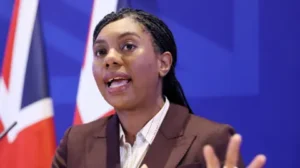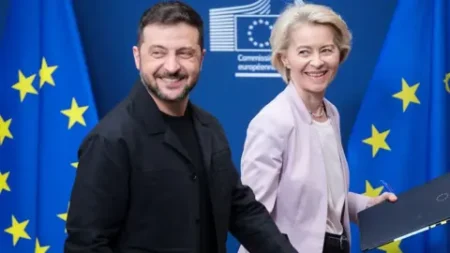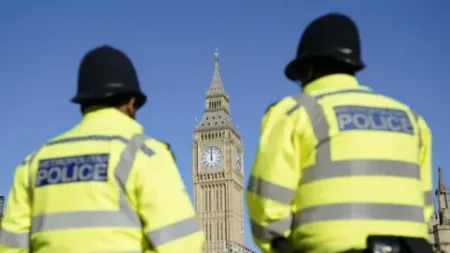The recent events surrounding the controversial remarks made by the rap group Kneecap have sparked significant outrage, particularly from the family of Sir David Amess, a Conservative MP who was brutally murdered in 2021. His daughter, Katie Amess, has publicly called for the band to apologize for statements made during a performance that appeared to incite violence against politicians, specifically referencing a line that suggested “the only good Tory is a dead Tory.” This has raised alarm bells not only due to the historical context of political violence in the UK but also because of the persistent tension surrounding political discourse in modern society.
Katie Amess expressed her disbelief and anger at the group’s rhetoric. Speaking about her father’s tragic murder, she emphasized how such statements perpetuate dangerous narratives that can lead to real-world consequences. She stated, “I am gobsmacked at the stupidity of someone or a group being in the public eye and saying such dangerous, violent rhetoric.” Her call for accountability has been echoed by others, including Kemi Badenoch, the leader of the Tory Party, who condemned the comments as glorifying terrorism and called for police action. Badenoch’s stance reflects a growing concern among politicians about the rise of aggressive and violent language, which can alienate communities and threaten the safety of lawmakers.
In response to the backlash, Kneecap took to social media to claim that they are victims of a “co-ordinated smear campaign.” They argue that their comments are part of a broader artistic expression and critique of political issues, particularly regarding the dynamics in Northern Ireland. Despite this defense, the footage remains under scrutiny by counter-terrorism police, further underscoring the serious nature of the allegations against them.
The trigger for Katie Amess’s outcry was not merely the content of the lyrics but also the painful memories they invoke regarding her father’s death. Sir David Amess was attacked during a constituency meeting in a brutal act that left his family and the public shocked and grieving. The memory of his death looms large over political conversations, making statements like those from Kneecap particularly incendiary. Katie Amess has emphasized the need for the group to understand the hurt caused by their words, insisting they should take responsibility and apologize both to her and to the broader public affected by such inflammatory language.
Moreover, the daughter of the late MP offered to meet with the band to discuss the impact of their statements on her life and the lives of those affected by political violence. She expressed a willingness to foster dialogue, suggesting that perhaps the group did not fully grasp the seriousness of their comments. “If they are willing to listen to how my life has been obliterated and will never be the same… for them to say those words is obviously very triggering,” she stated, echoing a sentiment that many in the public might share.
While political leaders have condemned the remarks, the debate continues around the limits of artistic expression and the responsibilities artists hold in crafting their messages. Figures like Gavin Robinson, leader of the Democratic Unionist Party, have called for investigations into the matter, underscoring the need for a legal response to such incendiary rhetoric that crosses a line into threats of violence.
In addition to the immediate fallout from the comments, the group has faced a broader backlash, evidenced by their recent performance at Coachella where they displayed controversial messages regarding international conflicts. The band’s actions attracted reformative critiques from prominent figures in the entertainment industry, including Sharon Osbourne, who called for their US work visas to be revoked. Such actions underscore the growing public intolerance for any form of hate speech, particularly in contexts that could lead to real-world violence.
As the narrative continues to unfold, it raises critical questions about the intersection of art, politics, and responsibility. The conversations initiated by Katie Amess and the reactions from political leaders signal a broader societal recognition of the dangers present within influential platforms and the urgent need for accountability for those who use their voices for harm rather than healing. The ongoing discourse will undoubtedly shape the future of how such statements are perceived and dealt with within the art and music communities moving forward.











